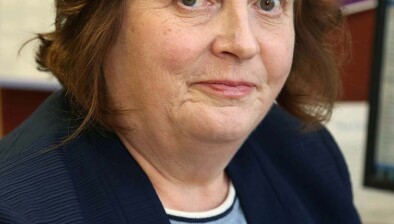Pressure piled on government over plan to remove welfare entitlement from bereaved co-parents

The social protection minister has come under further pressure to justify why legislation brought in response to a Supreme Court ruling will remove social welfare entitlements of divorced and separated lone parents.
The Bereaved Partner’s Pension Bill 2025 has been introduced by the government in response to the judgment handed down in John O’Meara & Ors v The Minister for Social Protection, Ireland and the Attorney General [2024] IESC 1.
The court found in that case that the refusal of a widower’s contributory pension to a man following the death of his cohabiting partner and mother to their three children was unconstitutional as it “makes a distinction that is arbitrary and capricious”.
The bill will expand entitlement to widow/widower’s pensions to qualified cohabitants and their children.
However, it will also remove the existing entitlement for parents who are divorced or separated.
Minister Dara Calleary yesterday appeared before the Oireachtas social protection committee and was pressed by Ruth Coppinger, the People Before Profit-Solidarity TD for Dublin West, to justify the changes.
He said the bill was introduced to correct an “anomaly” and it was necessary to introduce “consistency” to the system.
Other means-tested supports are available to families who might lose entitlement, he added.
Ahead of the committee meeting, family rights organisations Treoir and One Family joined a call from legal rights group FLAC — which represented the O’Meara family in the Supreme Court case — for the government to drop the proposed measure.
In a letter sent to the committee, FLAC chief executive Eilis Barry said the death of a divorced or separated partner “can still bring about a financial loss for families” and there was no reason why they should be “arbitrarily excluded from the safety net”.
Ms Barry said: “The O’Meara judgment is, at its core, about equality between families.
“The provisions in the 2025 Bill concerning cohabiting families will have a significant positive impact for couples and families who, like the O’Meara family, suffer a bereavement and the emotional and financial impact that that inevitably entails.
“These provisions go beyond what is strictly required by the O’Meara judgment, and extend entitlement to bereaved cohabitants who do not have children. This compassionate and generous ‘levelling-up’ approach should be taken throughout the entire bill.”
Treoir CEO Damien Peelo said: “The Supreme Court’s ruling in the O’Meara case was a powerful affirmation that children should not be penalised for their parents’ marital status. It corrected a clear injustice in our social welfare system.
“However, the proposed Bereaved Partner’s Pension Bill risks replacing one inequality with another by excluding parents who are divorced or separated, including those who are supporting their child either financially or emotionally.
“This is a moment to extend compassion and support to all bereaved families, not to narrow the scope of protection. Any parent who has provided consistent financial or emotional support to their child should be recognised.
“Grieving children deserve equal treatment, regardless of their parents’ relationship status.”
One Family CEO Karen Kiernan added: “Only a very small number of people who were divorced or separated claim a survivor’s pensions in respect of their dependent children each year.
“These families may have been reliant on maintenance payments from a deceased former partner and the scheme is designed to ensure that this financial impact is addressed.
“We see no basis for removing their entitlement.
“It is highly concerning that the potential financial impact the 2025 Bill could have on this group does not seem to have been considered by the Department in what is otherwise a very positive piece of legislation.”







